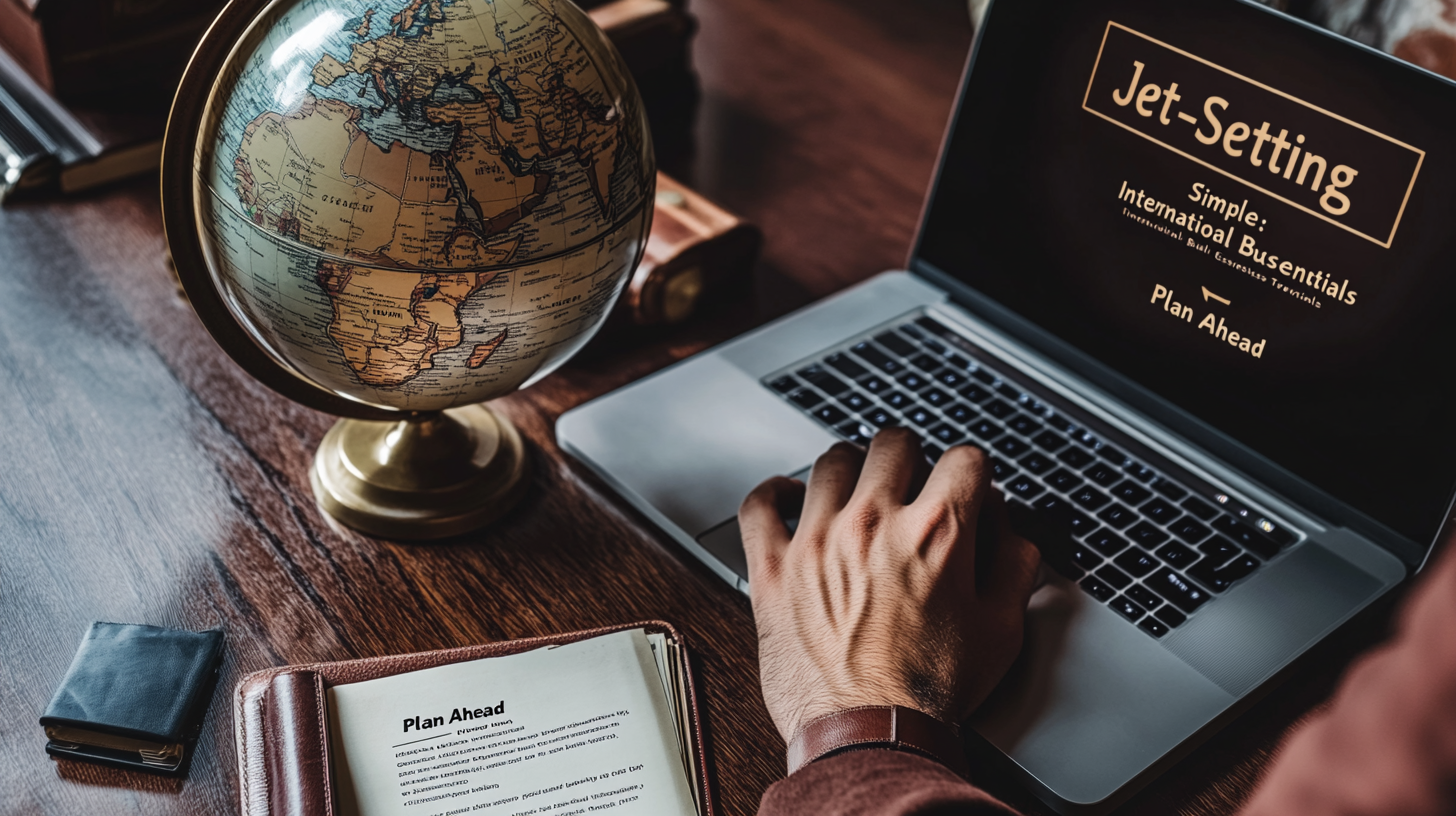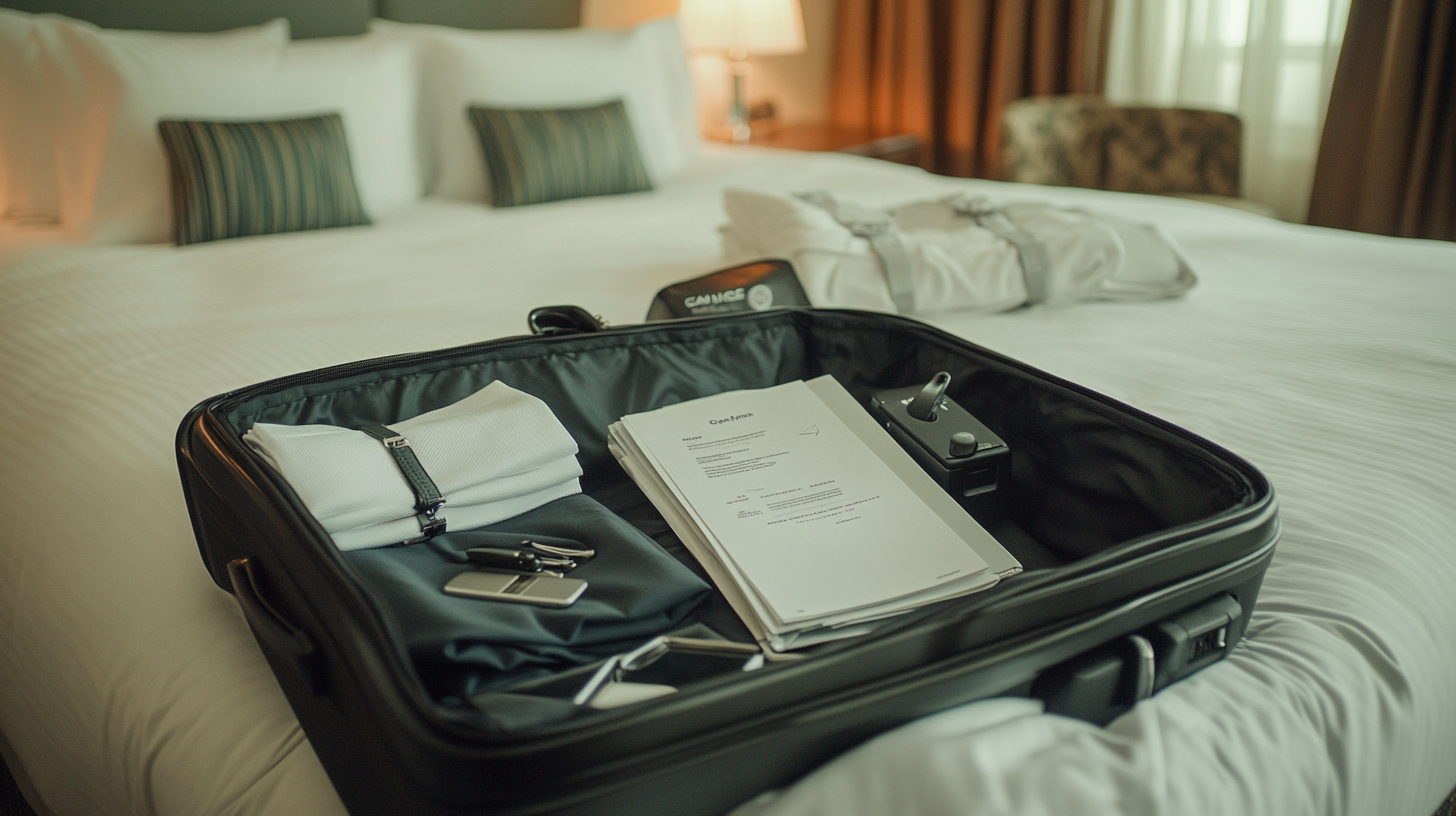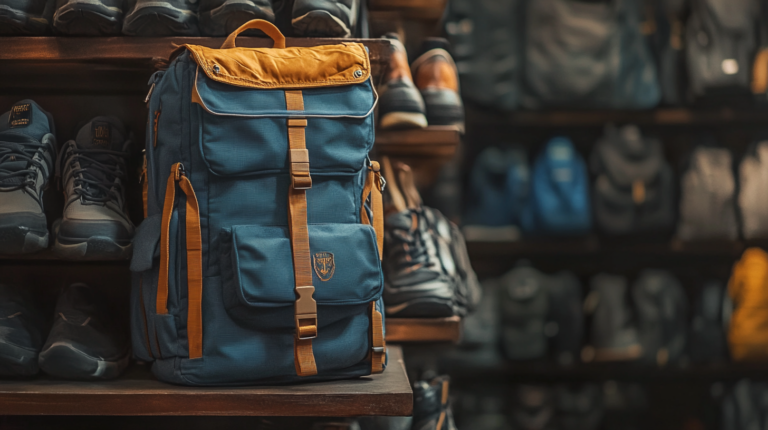Jet-Setting Made Simple: International Business Travel Essentials
International business travel can feel like stepping into a whole new universe, filled with unlimited potential for forging global connections and uncovering untapped markets. I’ve always found something almost electric about packing up my laptop and heading to airports, knowing that a single meeting abroad might reshape business relationships for years to come—especially now, in 2025, when the world is once again brimming with international opportunities.
1. Plan Ahead

Preparation goes beyond simply checking if your passport is still valid. I’ve learned from experience that it helps to build a scheduling buffer for unexpected hiccups. If you’re working with official U.S. .gov resources, look up the specific travel advisories for each destination—double-checking country requirements, visa wait times, and mandatory health directives. A 2024 report from the Global Travel Network indicated that 73% of frequent flyers faced at least one document-related travel delay in the past two years, which just goes to show how critical this step is.
For a more in-depth road map of cultural and legal norms, I consult Country Commercial Guides. They provide an insider’s lens on local regulations, which can save a lot of trial and error. I also follow the example of seasoned travelers like Anna Johansson, who suggests mapping out backup transportation options and building in time for lost luggage or rebooked flights. I’ve adopted the philosophy that it’s always better to have a cushion than to scramble last minute.
In my own travels, I also keep a running list of must-have apps, from language translation and currency converters to rideshare services that work locally. By planning ahead, you’re effectively boosting your odds of a smooth trip and sidestepping the most common pitfalls business travelers face.
2. Master Local Customs

It’s one thing to memorize a handful of local phrases; it’s another to truly understand how people in a specific country communicate, socialize, and do business. I’ve observed deals fizzle simply because the visiting party showed a lack of awareness about basic cultural norms—like forgetting to exchange business cards with both hands in certain regions or scheduling meetings on holidays when offices are closed. According to a 2023 Global Business Etiquette survey, 61% of respondents said cultural misunderstandings negatively affect negotiations.
That’s why I consider thorough research on local customs essential. It goes beyond “please” and “thank you.” My personal best practice? Schedule a briefing call with someone familiar with the region before you go. I’ve also embraced the habit of perusing local news outlets, scanning them for tidbits on social conventions and current events. This approach, combined with Anna Johansson’s cultural awareness insights, ensures meetings run more smoothly.
Site visits offer another level of clarity. I’ve seen companies rework entire advertising strategies after realizing their initial designs clashed with local preferences. By absorbing these nuances in person, you’ll know how to tailor your marketing message and product offerings for a more favorable reception.
3. Pack Smart

I like to think packing light is a modern-day superpower for travelers. Lugging around multiple suitcases not only slows you down but also increases the odds of losing something important. Based on a 2024 travel insurance study, baggage mishaps top the list of travel headaches, affecting roughly 25% of frequent flyers over the last year. To reduce your chances of mishaps, consider placing vital items—like essential electronics, documents, and a change of clothes—in a sturdy carry-on.
When it comes to picking luggage, I can personally vouch for brands like TUMI or Samsonite. Their bags feature compartments that help you stay organized without feeling weighed down. I stash valuables in slim money belts as an extra precaution and opt for universal adapters to charge up devices in any country. This strategy lines up perfectly with the classic 17 tips for international travel. Throwing in mobile boarding passes and any skip-the-line options offered by airlines can further shave off unnecessary waiting times.
I’ve also learned to prioritize adaptogens or mild sleep aids for long flights. It’s surprising how a well-timed nap can reset your internal clock and help you land with energy to spare. Ultimately, your suitcase should reflect both efficiency and security—two elements that can make or break your experience on the road.
4. Consider Real-Time Support

Sometimes, you just want an expert’s backing. Travel management companies like WorldTravelService® in the Washington, DC area coordinate everything from flights to hotel bookings, often leveraging advanced systems like Amadeus to keep your itinerary up-to-date. In my own circle of frequent flyers, some rely heavily on these services, especially for complex multi-city journeys. I’ve seen them swoop in to handle unexpected flight cancellations or rebookings at a moment’s notice.
From my perspective, the benefit lies in the peace of mind this real-time support provides. When I traveled to a multi-leg conference tour across Europe and Asia last summer, having immediate access to professional planners saved me hours of potential troubleshooting. According to industry data from the 2025 Corporate Travel Insight forum, 82% of travelers who used specialized travel services reported fewer disruptions in their trip.
Whether you’re trying to connect with clients in Tokyo, attend a trade show in Frankfurt, or finalize negotiations in Dubai, on-call experts can navigate scheduling changes, secure last-minute tickets, or coordinate ground transport seamlessly. If you thrive on focusing purely on the business at hand, it might be worth the investment.
5. Stay Safe

Safety may not be the most glamorous topic, but it’s arguably the most important. In certain global hotspots with higher crime rates—like Lagos or Caracas—visitors have to raise their guard and plan even the simplest activities. Before I travel, I assess local advisories by pairing data from the U.S. State Department with news reports from reputable international news outlets. I also make sure my corporate travel insurance covers any unforeseen health or travel mishaps. In 2024 alone, about 14% of business travelers reported some form of safety concern, reinforcing the necessity of proper precautions.
Capital cities like New York, London, and Singapore remain top draws for business, but each locale comes with its own rules of the road. I suggest registering with local embassies whenever you’re staying for more than a quick stopover, as they often send timely security updates. It’s a straightforward way to maintain peace of mind, no matter how chaotic your schedule gets.
On a more day-to-day level, I keep my corporate cards in RFID-blocking sleeves and rely on secure, encrypted Wi-Fi networks for sensitive transactions. Risk management experts recommend verifying the legitimacy of local Wi-Fi hotspots before logging in. Adding these extra layers of security ensures you can focus on achieving your business objectives with minimal worry.
6. The Bottom Line

International business travel remains a dynamic engine for forging new relationships and expanding global footprints. From brushing up on cultural finesse to leveraging real-time travel services, a strategic approach can transform these trips from stressful undertakings into streamlined experiences. I’ve found that attention to detail—typed-up itineraries, cultural briefings, efficient packing—consistently pays off in the form of punctual arrivals and successful deals.
But preparation alone isn’t everything. Global markets move fast, so adaptability is just as critical. By being open to changes in meeting locations or sudden shifts in local conditions, you’ll discover that every flight can become a productive journey, one with fewer rough patches and more meaningful wins.
Final Thoughts

When I piece together everything I’ve learned, it’s clear that success in international business travel is an ever-evolving process. Now that global routes are open again, being ready doesn’t just mean checking off a few documents—it means approaching each trip with a balance of curiosity, resourcefulness, and cultural know-how.
A recent study from the 2024 Global Traveler Index showed a 19% uptick in companies investing in specialized travel training for their employees—yet that number only scratches the surface of what’s needed to navigate the nuances of worldwide commerce. By continually refining your approach, you’ll see how every journey adds to your arsenal of travel smarts.
Barry B.’s Take
I find that the magic often lies in the tiny, unexpected moments: a quick cultural insight shared by a local colleague, a quiet realization that you’ve finally nailed the local transit system, or that perfect cup of coffee that powers you through a busy day of back-to-back meetings. Each trip contributes to a broader mosaic of international wisdom.
My hope is that my observations inspire you to keep reaching beyond your comfort zone. Because when you’re ready for anything, the skies are the limit—literally and figuratively.







